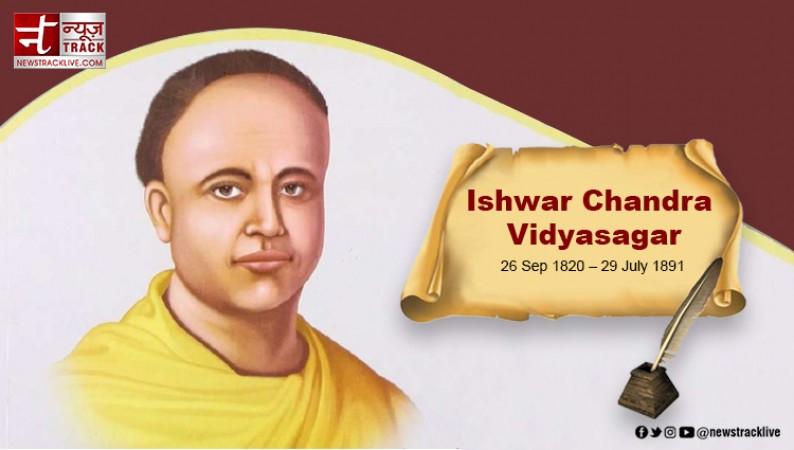
Ishwar Chandra Vidyasagar, also known as Isvarcandra Vidyasagar, was an Indian educator and social reformer who is regarded as the founder of Bengali prose. He was born in Birsingha, Midnapore district (India), on September 26, 1820, and passed away on July 29, 1891.
After gaining the moniker Vidyasagar ("Ocean of Learning") for his academic prowess at the Sanskrit College in Calcutta (now Kolkata), he was named head pandit (scholar-teacher) of Fort William College in 1850. Later on, he was appointed principal of Sanskrit College, where he encouraged the study of English and welcomed lower caste students.
In addition to reading a lot of English literature, Vidyasagar was also inspired by Western thought. Despite being a traditional high-caste Brahman, he played a key role in social reform campaigns, most notably in the successful effort to legalise widows' remarriage. Many of these women had been married for the first time as children. He worked hard to advance girls' education and fight against child marriage and polygamy, but conservative Hindus fiercely rejected his reformist zeal.
Vidyasagar was an active and prolific writer. His writings include Vetal pancavimsati (1847), "Twenty-Five Tales of a Goblin," Shakuntala (1854), which was based on a well-known play by the Sanskrit poet and playwright Kalidasa, and "The Exile of Sita" (1860).
He revolutionised the Bengali educational system and improved Bengali language writing and instruction. The first literature used to introduce Bengali alphabets is still his book, "Borno Porichoy" (Introduction to the Letter). Due to his extensive knowledge of several areas, he was given the name "Vidyasagar" (ocean of knowledge). Michael Madhusudan Dutta, a poet, said the following about Ishwar Chandra: "The genius and wisdom of an ancient sage, the energy of an Englishman and the heart of a Bengali mother".
On September 26, 1820, Ishwar Chandra Bandopadhyaya was born in Bengal's Midnapore district's Birsingha hamlet. His mother Bhagavati Devi and father Thakurdas Bandyopadhyay were devout believers. Ishwar had to spend his early years in an environment where there was few access to essential resources due to the family's poor economic situation. Ishwar Chandra was a stubborn boy with a sharp mind who concentrated his obstinacy on his education despite everything. At the village pathshala, he acquired the fundamentals of Sanskrit before departing with his father for Calcutta in 1826. There are various misconceptions about his brilliance and commitment to learning. Ishwar Chandra Vidyasagar is credited with learning English numerals by reading the mile-stone labels as he travelled to Calcutta.
Ishwar Chandra used to help with home duties after school and study at night beneath gas-lit street lamps to conserve oil for the next day's cooking because his father Thakurdas and his sons lived in the Burrabazar neighbourhood of Calcutta. Because of their limited financial resources.
Porsche has recalled more than two lakh vehicles for simple lighting repairs.
Olivia Wilde's film had the 'most harmonious set' amid drama rumours, Movie Crewmate says
J-Hope of BTS and Crush have announced a collaboration for "Rush Hour."